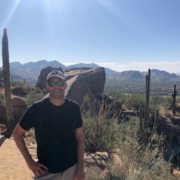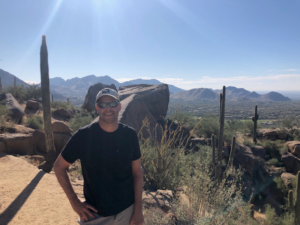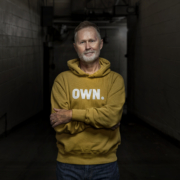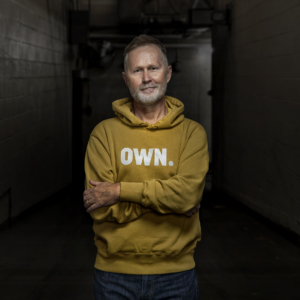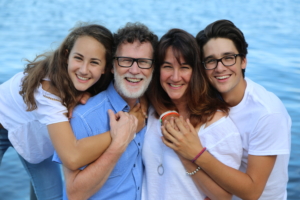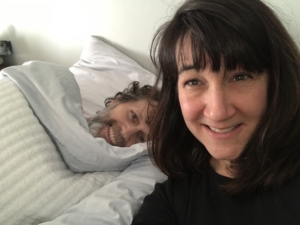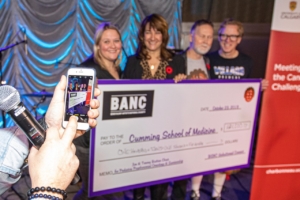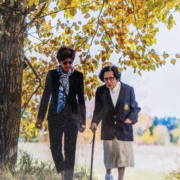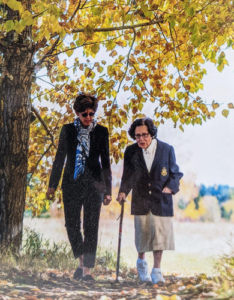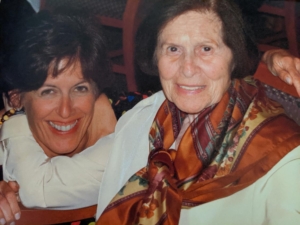How Randy Thompson owns cancer
Randy Thompson has been working as a Social Worker for over 30 years. Although his professional experience helped him navigate through his cancer journey, it was the consistent support from his family and loved ones that gave him the strength to persevere.
Here, he shares his cancer journey and what OWN.CANCER means to him.
I was always healthy throughout my lifetime, until my cancer diagnosis at 54 years old. I am a sports fanatic and enjoy playing, which has been good for my physical and mental health. I also have a bit of a sense of humour, which has also helped me deal with the “dark days” of treatment and recovery.
I’ve learned the importance of balance throughout my journey.
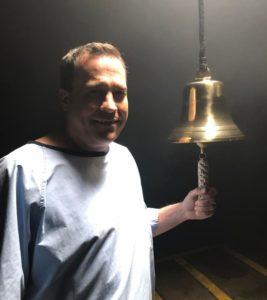
How did your cancer journey begin? Where were you treated?
For approximately one month, I felt that something wasn’t right. I completed a FIT test as per my GP, and sure enough, it failed. I was then scheduled for a colonoscopy which confirmed I had cancer. My initial diagnosis was on March 25th, 2020, and then confirmed stage 4 on March 27th, as the disease metastasized with liver and rectal cancer.
It is amazing how quickly life can change in a split second and how quickly the medical community responds to such a diagnosis. Also, due to the severity of my condition, I was immediately referred for treatment at the Tom Baker Cancer Centre. After a battery of tests, further investigation and recommendations, we began aggressive chemotherapy with the hope that I would qualify for surgery in one year.
With an amazing medical team, huge support from family and friends and some difficult side effects to overcome, my body responded extremely well to treatment and at the ninth month period, I was scheduled for surgery to remove any existing tumours.
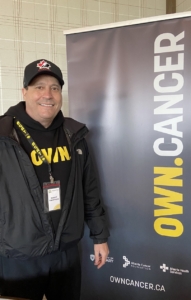
After a successful surgery in December 2020, I was essentially considered “cancer free”, which was nothing short of a miracle, despite having to manage with an ileostomy for a few months. This was a small price to pay knowing the surgeon could reverse it when it was safe to do so, which was reversed approx. 7 months later.
I lived cancer free from that day up until a scheduled CT scan in 2022, where my oncologist noticed a “spot” on my lung that hadn’t been there before. While quite small in nature, was confirmed as cancerous and I was immediately referred to a thoracic surgeon for a consult and plan. We agreed that surgery would be the most assured path of treatment and I had a successful resection surgery in June 2022. Unfortunately, there was a post-op complication of a pneumothorax, which landed me back in the hospital for 14 days in recovery.
Having recovered from that, I am now cancer-free and resuming regular bloodwork and scans at Tom Baker. – Randy Thompson
How are you today?
I feel blessed being cancer free and continue to recover from my most recent medical procedures. I continue to OWN.CANCER with the confidence in my medical support team and support network, and know that we will overcome any obstacles that come our way!
What were some challenges you faced in your journey, and what advice do you have for others who may face the same challenges?
There are many challenges that cancer patients face throughout their journey, beginning with the emotional impact of hearing “you have cancer”. In treatment, you will face a number of side effects that can zap your energy, bring on other sicknesses and weigh on you mentally. It was important for me to remember that cancer treatment is a journey, that it’s a marathon not a race.
It is important to open yourself up to help from others and focus on the end-goal. There will be good and bad days and know that that’s ok. It was important to be honest with how you are feeling and to share that with others. Everyone’s journey is different. Listen to your body, ask questions and trust in the process. Always keep hope alive!
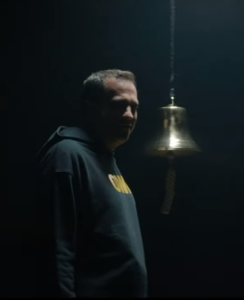 What does the new Calgary Cancer Centre mean to you? How do you OWN.CANCER?
What does the new Calgary Cancer Centre mean to you? How do you OWN.CANCER?
As the province’s leading health care facility, the new Calgary Cancer Centre will mean a lot to cancer patients and their families, as a place of hope and healing. With advancements in clinical trials, innovation and research, they are finding new ways to detect cancer earlier, which will result in better outcomes for cancer patients.
This Centre is dependent on funding through various means and one of the ways I OWN.CANCER is through sharing my journey through social media and dedicating time through volunteering with the Alberta Cancer Foundation and the OWN.CANCER campaign. I was extremely proud to be a part of the OWN.CANCER commercial, which was integral to the Centre’s key fundraising campaign and will continue to support the campaign and others in their cancer journey, throughout my lifetime.
Let’s all OWN.CANCER and not let this disease define us. There is great strength in “hope”, even in the most dire of circumstances. The new Calgary Cancer Centre will be that hope! – Randy Thompson

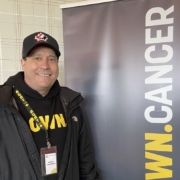
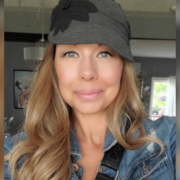
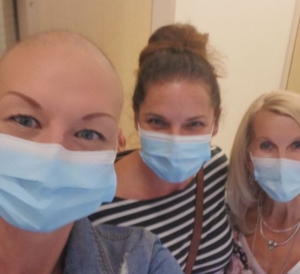 For about a week, Brandi stepped away to think over the options she was given with one of her closest friends by her side, a nurse at the Tom Baker Cancer Centre and someone who joined her for all of Brandi’s appointments. After discussing her options with her friend and doing her own extensive research, Brandi decided to go with a double mastectomy.
For about a week, Brandi stepped away to think over the options she was given with one of her closest friends by her side, a nurse at the Tom Baker Cancer Centre and someone who joined her for all of Brandi’s appointments. After discussing her options with her friend and doing her own extensive research, Brandi decided to go with a double mastectomy.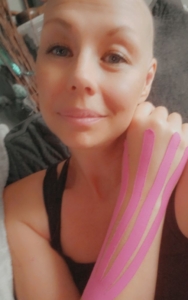
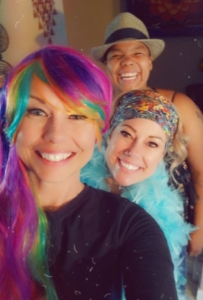
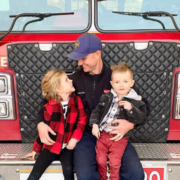
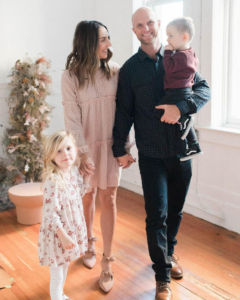 person that is supposed to be invincible, and to have to tell them that you are not, was incredibly painful. That said, if someone had to take the statistical bullet with this disease, I’m glad it was me and not any of them. With our kids being so young, they don’t have a full understanding of what happened last year. So, unfortunately, the brunt of that fell onto Lindsay [Lorne’s Wife]. For us, the diagnosis really reinforced the vows we took on our wedding day to be there for each other and our family in whatever comes our way. News like this is always difficult for a family to process and as one of my Doctor’s said last year, ‘this is the hand you’ve been dealt, how you play it is up to you.'” – Lorne Miller
person that is supposed to be invincible, and to have to tell them that you are not, was incredibly painful. That said, if someone had to take the statistical bullet with this disease, I’m glad it was me and not any of them. With our kids being so young, they don’t have a full understanding of what happened last year. So, unfortunately, the brunt of that fell onto Lindsay [Lorne’s Wife]. For us, the diagnosis really reinforced the vows we took on our wedding day to be there for each other and our family in whatever comes our way. News like this is always difficult for a family to process and as one of my Doctor’s said last year, ‘this is the hand you’ve been dealt, how you play it is up to you.'” – Lorne Miller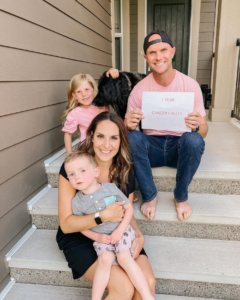 Lorne recently celebrated one year of being cancer-free on the same day as his 39th birthday. A lot can change in 365 days. When we asked how he is doing today, he said, “All things considered; I’m doing absolutely incredible. This time last year, I would have given anything to be in this position today.” It comes without saying, Lorne radiates positivity into the lives of those around him and for us as well. He states, “I’m beyond grateful for the incredible support I have received during this process. Although challenging, this last year has been an incredible gift and second chance to make the most of my time here. I have, and will continue, to work hard at paying back all the love and support our family has received by being living proof of the good things that can happen with the power of faith, and community.”
Lorne recently celebrated one year of being cancer-free on the same day as his 39th birthday. A lot can change in 365 days. When we asked how he is doing today, he said, “All things considered; I’m doing absolutely incredible. This time last year, I would have given anything to be in this position today.” It comes without saying, Lorne radiates positivity into the lives of those around him and for us as well. He states, “I’m beyond grateful for the incredible support I have received during this process. Although challenging, this last year has been an incredible gift and second chance to make the most of my time here. I have, and will continue, to work hard at paying back all the love and support our family has received by being living proof of the good things that can happen with the power of faith, and community.”